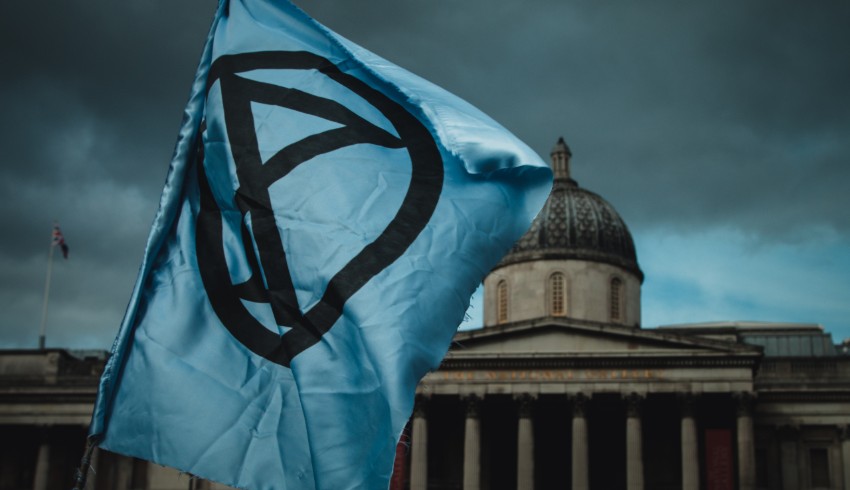Blog

In this week of the AllAboutLaw blog, we look at the aftermath of the London-wide ban on the extinction rebellion protests, the challenge to the Ivory Act of 2018, and the mounting tension in Catalonia following the decision to sentence Catalan leaders linked to the referendum of 2017.
Extinction Rebellion seeking legal action
Last week, the Metropolitan Police issued a city-wide ban on Extinction Rebellion protests in London. They announced a deadline for protests to cease by 9 pm on Monday 14th October. Throughout the autumn Extinction Rebellion protests, more than 1,400 people have been arrested and anyone defying the police orders has been threatened with detention.
The ban has not been taken lightly by Extinction Rebellion protesters, and the climate action group have since launched legal action against the Metropolitan police for banning the protests in London. Spokespersons of the group have condemned the move as a “disproportionate and unprecedented attempt to curtail peaceful protests”, along with civil liberties groups, such as Amnesty International. Gracie Bradley, the advocacy and policy manager of Liberty, has compared the ban on protests to an affront on freedom of expression: “Freedom of expression and assembly are fundamental rights, protected by domestic and international law. The courts have made clear that a protest is not unlawful just because it is disruptive.”
Following the decision to ban protests in London, the mayor, Sadiq Khan, spoke with the Metropolitan police to enable the continuation of the climate emergency protests in a legal and peaceful manner. However, the Deputy Assistant Commissioner, Laurence Taylor, said the conditions of the ben “specifically state that any assembly linked to Extinction Rebellion’s autumn uprising must now cease”.
Tobias Garnett, a human rights lawyer working for Extinction Rebellion, declared the group was seeking a fast-track hearing to challenge the ban on the grounds that it is “disproportionate and unlawful”.
___________________________
“A ... right of every [man] is that of applying to the courts of justice for redress of injuries. Since the law is in England the supreme arbiter of every man’s life, liberty, and property, courts of justice must at all times be open to the subject, and the law be duly administered therein.”
Edward Coke, Commentaries on the Laws of England, (1765-1769)
___________________________
Firm News
A partner has publicly spoken against the global legal directory, Chambers & Partners, for its alleged failure to recognise women lawyers in sufficient numbers.
Shearman & Sterling hires Alan Rockwell and Michael Chernick, two finance attorneys from Allen & Overy.
Investment in UK legal tech start-ups has increased considerably by £39 million in one year.
PwC has increased the salaries of its trainees and newly qualified solicitors.
___________________________
The Catalonia protests
As a result of the unauthorised independence referendum held on the 1st of October 2017, the Spanish Supreme Court has sentenced nine Catalan leaders to between nine and 13 years in prison.
This decision has sparked daily protests in Barcelona, which have often led to violence between the youth and riot police. On Saturday night the protests escalated significantly with masked groups of people blocking roads with fire and throwing petrol bombs, debris, firecrackers and acid at police.
In an effort to ease tensions, Catalonia’s president, Quim Tora, has sought negotiations with Madrid to find a “democratic solution” to the crisis. However, Madrid has refused to discuss the issue further.
___________________________
The Ivory Act facing judicial review
The UK Ivory Act was introduced in 2018 and intended to protect elephants from ivory poachers by placing tighter regulations on the buying and selling of ivory from, to and within the UK. Although the legislation has yet to come into force, the act was subject to Judicial Review at the High Cout on Wednesday. The challenge to the act is due to resistance from the antique trade.
The Department of the Environment, Food, and Rural Affairs (Defra) are determined to protect the measure that attracted cross-party support. However, antique traders have argued that sales of “cultural heritage” object have no impact on the market for illegally-plundered tusks and that the Ivory Act is incompatible with EU law, which allows trade in ivory dating before 1947.
___________________________
Securing a training contract can prove to be extremely difficult due to their limited availability. Make sure your CV stands out with an array of legal experience. Vacation schemes are an excellent way to demonstrate your experience and commitment to the legal profession. Check out our website now to discover all the vacation schemes you can apply to.
___________________________
Recommended reading
In response to Trump’s decision to pull troops from Syria, lawmakers have voiced their fear that “ISIS will be back”.
Protests in Lebanon in response to new tax measures are met with “excessive” force by authorities.
If the Brazilian Supreme Court reverses a three-year-old rule, Lula and many others convicted of corruption in the Car Wash scandal could be released from prison.
A law firm at the centre of the Panama Papers scandal has filed a lawsuit against the new Netflix film, ‘The Laundromat’.
The Turkish military’s actions in Syria risk breaching international law according to Amnesty International.
Facebook’s Libra cryptocurrency faces many challenges, including ‘core’ legal and regulatory challenges.
The incorporation of artificial intelligence (AI) in the legal profession is, apparently, already here.
A former SS guard went on trial in Germany on over 5000 counts of accessory to murder.
The government’s push to automate the benefits system is leaving claimants behind.
Academy tools to help you get a job
-

Free Watson Glaser Practice Test
Understand the test format, compare your performance with others, and boost your critical thinking skills.
